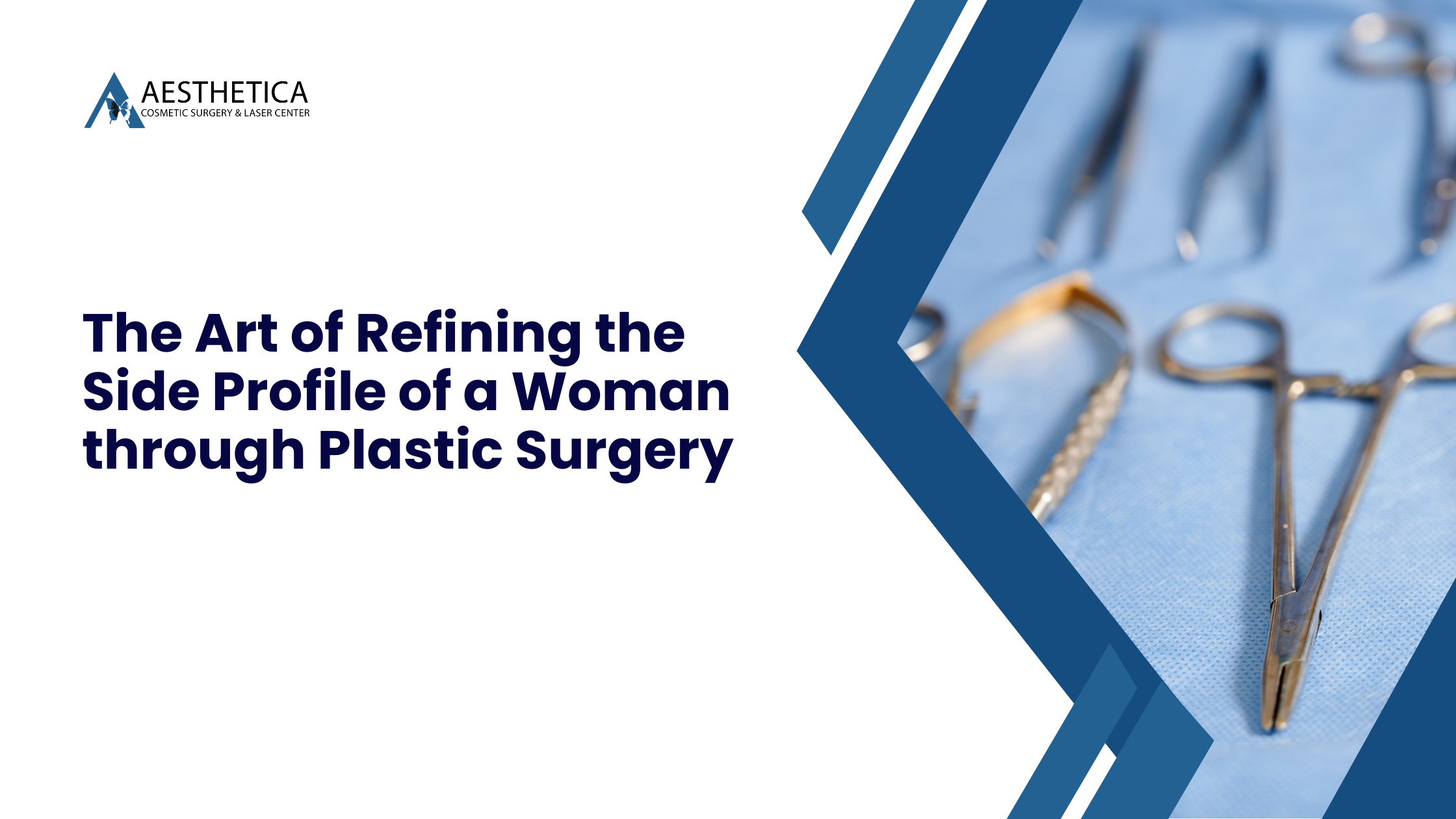Why Does Urinary Incontinence Occur? Exploring Non-Surgical Treatment Options6 min read

Aesthetica Editorial Team

Urinary incontinence is a common condition that affects many individuals, particularly women. It refers to the involuntary leakage of urine, which can be embarrassing and disruptive to daily life.
While surgical options exist for treating urinary incontinence, non-surgical treatments are gaining popularity due to their effectiveness and minimal invasiveness.
One such treatment option is the Sciton diVa Laser, which has shown promising results in managing urinary incontinence.
In this article, we will explore the reasons behind urinary incontinence and various non-surgical treatment options, focusing on the Sciton DiVa Laser!
50% of adult women show symptoms of urinary incontinence!
Source: Mayo Clinic
Why Does Urinary Incontinence Occur?
Urinary incontinence can occur due to various underlying factors. Understanding these causes is crucial in determining the most appropriate treatment approach.
Here are some common reasons why urinary incontinence may occur:

Weak Pelvic Floor Muscles
The pelvic floor muscles play a vital role in controlling urine flow. If these muscles are weak or damaged, they may not effectively support the bladder and urethra, leading to leakage.
Hormonal Changes
Hormonal changes during menopause contribute to urinary incontinence. The decline in estrogen levels weakens the pelvic floor muscles, causing changes in bladder function.
Chronic Conditions
Certain chronic conditions, such as diabetes, multiple sclerosis, and Parkinson’s disease, can affect nerve function and bladder control, resulting in urinary incontinence.
Urinary Tract Infections (UTIs)
UTIs can cause temporary urinary incontinence, particularly in older adults. The infection irritates the bladder, leading to a sudden and uncontrollable urge to urinate.
Medications
Some medications, such as diuretics and sedatives, can increase urine production or affect bladder control, leading to urinary incontinence.
Preventing Urinary Incontinence: Tips for Maintaining Bladder Health
Maintaining bladder health and preventing urinary incontinence can be achieved through simple lifestyle adjustments and healthy habits. Here are some key tips:
- Maintain a healthy weight to reduce pressure on the bladder and pelvic floor muscles.
- Stay hydrated, but moderate caffeine and alcohol consumption as they can irritate the bladder.
- Regular pelvic floor exercises like Kegels strengthen the muscles supporting bladder control.
- Avoid constipation by eating a fiber-rich diet, staying active, and establishing regular bowel habits.
- Quit smoking to prevent chronic coughing, which can weaken the pelvic floor muscles.
- Practice good toilet habits, taking your time to empty your bladder fully and avoiding rushing or straining.
- Lift objects safely using proper techniques to minimize strain on the pelvic floor.
- Seek treatment for chronic coughing to address its underlying cause.
Non-Surgical Treatment Options for Urinary Incontinence
Fortunately, several non-surgical treatment options are available to manage urinary incontinence effectively. These treatments aim to strengthen the pelvic floor muscles, improve bladder control, and reduce leakage.
Pelvic Floor Exercises
Pelvic floor exercises are a widely recommended first-line treatment for urinary incontinence.
These exercises involve contracting and relaxing the pelvic floor muscles to improve strength and endurance. Performing Kegel exercises regularly can significantly reduce urinary leakage and enhance bladder control.
Behavioral Techniques
Behavioral techniques focus on adopting certain habits and lifestyle changes to manage urinary incontinence.
These techniques include:
- Bladder Training: This involves gradually increasing the time between bathroom visits to improve bladder capacity and control.
- Fluid Management: Adjust fluid intake to avoid overfilling the bladder and reducing the frequency of urination.
- Scheduled Bathroom Visits: Setting regular bathroom visit schedules to prevent accidents and maintain bladder control.
Electrical Stimulation
Electrical stimulation involves using low-intensity electrical currents to stimulate the pelvic floor muscles. This stimulation can help strengthen the muscles and improve their coordination. It is often used with other treatment methods to enhance their effectiveness.
Medications
In some cases, medications may be prescribed to manage urinary incontinence.
These medications work by relaxing the bladder muscles or reducing bladder contractions. Consult a healthcare professional before starting any medication to determine the most suitable option based on individual circumstances.
Sciton DiVa Laser for Urinary Incontinence
The Sciton DiVa Laser is an innovative non-surgical treatment option for urinary incontinence.
It utilizes laser technology to stimulate collagen production and tighten the vaginal tissues. By strengthening the vaginal walls, the Sciton DiVa Laser can improve overall pelvic floor support, reducing urinary incontinence symptoms.
A qualified healthcare professional performs the procedure, which typically requires multiple sessions for optimal results. Patients generally experience minimal discomfort and downtime.
The Sciton DiVa Laser offers a safe and effective alternative for individuals seeking non-surgical treatment options for urinary incontinence!
Why Choose Sciton DiVa for Urinary Incontinence?
When seeking treatment options for urinary incontinence or looking to rejuvenate one’s intimate health, the plethora of options can be dizzying. Amidst these, Sciton diVa stands tall for a myriad of reasons:
Dual Benefits
Sciton diVa targets more than just urinary incontinence. The treatment, while providing relief from those unexpected leaks, also offers enhanced vaginal tightening. This dual-purpose treatment is particularly appealing to women who value both health and aesthetic outcomes.
Minimally Invasive With Maximum Impact
Sciton diVa offers a non-surgical solution that still yields pronounced results. Being minimally invasive, it cuts down potential complications and significantly reduces the recovery period.
Short Treatment Time
With Sciton diVa, time is of the essence. Most sessions are completed within 3-5 minutes in-office, allowing patients to fit their treatment into even the busiest of schedules.
Clinical Backing
Medical treatments, especially newer ones, can generate skepticism. However, the Sciton diVa laser is backed by clinical studies that attest to its safety and efficacy. These studies, combined with real-world testimonials, bolster its status as one of the top non-surgical treatments for urinary incontinence.
Tailored Treatments
Every patient’s body is unique, and so are their medical needs. The Sciton diVa laser can be customized to meet individual requirements, ensuring each treatment is as effective as possible.

Is Sciton DiVa Laser Treatment Right for You?
While the Sciton DiVa Laser has shown promising results in managing urinary incontinence, it is essential to consult a healthcare professional, such as Dr. Philip Chang, to determine the right treatment option for your specific needs. They will assess your medical history, symptoms, and individual circumstances to recommend the most suitable approach for managing urinary incontinence effectively.
Meet us at 19500 Sandridge Way, Suite 350, Leesburg, VA 20176, or call us at (703) 574-4342 for a complimentary consultation with Board-Certified Plastic Surgeon Dr. Phillip Chang before moving forward with your procedure! If everything matches up, our team will help you navigate the entire process from beginning to end! Also, remember to check out our blog and social media for more information on plastic surgery and plastic surgery trends!
References
- 5 Pelvic Floor Exercises for Anyone and Everyone — Access date: 14 July 2023.
- Is urine incontinence normal for women? – Mayo Clinic Health System — Access date: 14 July 2023.
- Prevention of Bladder Control Problems (Urinary Incontinence) & Bladder Health – NIDDK — Access date: 14 July 2023.
- Urinary incontinence – Symptoms and causes – Mayo Clinic — Access date: 14 July 2023.
Let Us Help You!
Our office can provide you with helpful information, schedule a free consultation, and walk you through the many services and procedures we provide.
Contact Dr. Chang's Office:
More Articles For You

The Latest Techniques in Double Chin Removal in Leesburg, VA
In the charming town of Leesburg, VA, where looking good and feeling great are top

The Art of Refining the Side Profile of a Woman through Plastic Surgery
In the realm of cosmetic enhancements, the side profile of a woman holds a pivotal

Enhance Now, Pay Later: Plastic Surgery Payment Plans in Leesburg, VA
In the picturesque town of Leesburg, VA, pursuing beauty and self-improvement is a journey many

Areola Reduction for Men in Loudoun County
In the heart of Loudoun County, where the beauty of nature meets bustling urban life,
